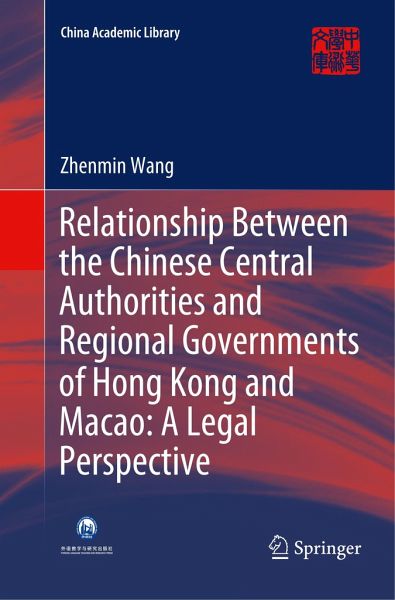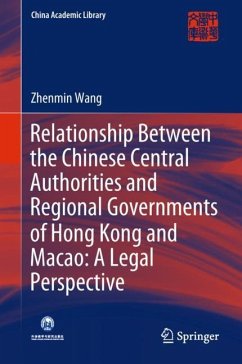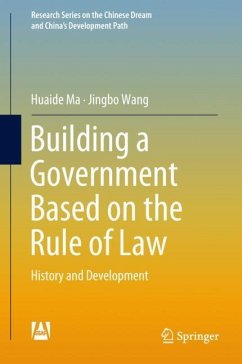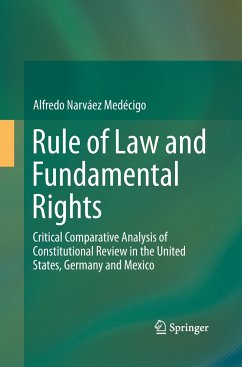
Relationship Between the Chinese Central Authorities and Regional Governments of Hong Kong and Macao: A Legal Perspective

PAYBACK Punkte
46 °P sammeln!
This book discusses the basic theories and structures employed in handling the Central-SAR relationship under the "One Country, Two Systems" policy from the perspective of ruling by law. It also explores the fundamental principles and methods used in the division of powers between the central authorities and the SARs, and investigates the institutions responsible for handling the Central-SAR relationship and their practices. Further, it presents case studies since 1997 to help readers better understand the Central-SAR relationship. Lastly, the author raises some new questions for readers who w...
This book discusses the basic theories and structures employed in handling the Central-SAR relationship under the "One Country, Two Systems" policy from the perspective of ruling by law. It also explores the fundamental principles and methods used in the division of powers between the central authorities and the SARs, and investigates the institutions responsible for handling the Central-SAR relationship and their practices. Further, it presents case studies since 1997 to help readers better understand the Central-SAR relationship. Lastly, the author raises some new questions for readers who want to further study this topic.














